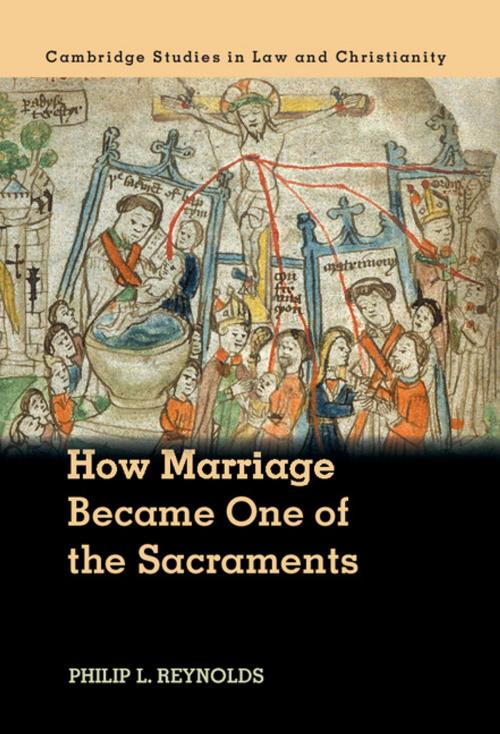How Marriage Became One of the Sacraments
The Sacramental Theology of Marriage from its Medieval Origins to the Council of Trent
Nonfiction, Reference & Language, Law, Legal History, Religion & Spirituality| Author: | Philip L. Reynolds | ISBN: | 9781316789469 |
| Publisher: | Cambridge University Press | Publication: | June 30, 2016 |
| Imprint: | Cambridge University Press | Language: | English |
| Author: | Philip L. Reynolds |
| ISBN: | 9781316789469 |
| Publisher: | Cambridge University Press |
| Publication: | June 30, 2016 |
| Imprint: | Cambridge University Press |
| Language: | English |
Among the contributions of the medieval church to western culture was the idea that marriage was one of the seven sacraments, which defined the role of married folk in the church. Although it had ancient roots, this new way of regarding marriage raised many problems, to which scholastic theologians applied all their ingenuity. By the late Middle Ages, the doctrine was fully established in Christian thought and practice but not yet as dogma. In the sixteenth century, with the entire Catholic teaching on marriage and celibacy and its associated law and jurisdiction under attack by the Protestant reformers, the Council of Trent defined the doctrine as a dogma of faith for the first time but made major changes to it. Rather than focusing on a particular aspect of intellectual and institutional developments, this book examines them in depth and in detail from their ancient precedents to the Council of Trent.
Among the contributions of the medieval church to western culture was the idea that marriage was one of the seven sacraments, which defined the role of married folk in the church. Although it had ancient roots, this new way of regarding marriage raised many problems, to which scholastic theologians applied all their ingenuity. By the late Middle Ages, the doctrine was fully established in Christian thought and practice but not yet as dogma. In the sixteenth century, with the entire Catholic teaching on marriage and celibacy and its associated law and jurisdiction under attack by the Protestant reformers, the Council of Trent defined the doctrine as a dogma of faith for the first time but made major changes to it. Rather than focusing on a particular aspect of intellectual and institutional developments, this book examines them in depth and in detail from their ancient precedents to the Council of Trent.















